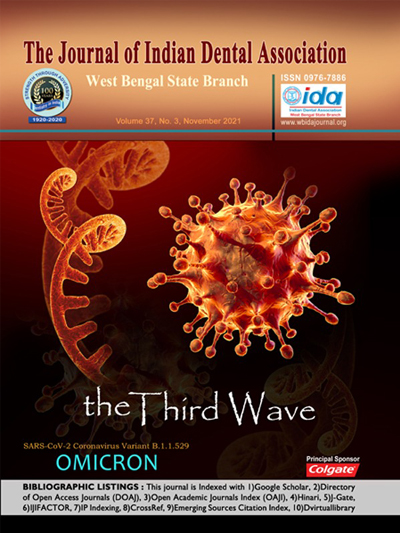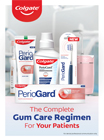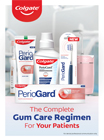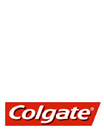Upcoming Events
1. Article Title.
2. Author Details.
3. Abstract.
4. Keywords.
5. Corresponding Author details.
November 2021
Volume : 37
No.: 3

Dr. Manidipa Das,Dr. Samiran Biswas,Dr. Partha Pratim Choudhury,Prof. (Dr.) Rup Kumar Das,Prof. (Dr.) Amal Kumar Chakrabarti,Dr. Soubhik Pakhira
Abstract: Maxillary canines are the cornerstone of the occlusion. A fully erupted maxillary canine supports thefacial muscles and lip of an individual. Thus it plays a pivotal role in providing aesthetic facial harmony and aids in oral function. Its position is a turning point in the occlusion and act as guidepost by virtue of its location. Sometimes canine may fail to erupt in time and those unerupted caninesare designated as 'impacted canine'. Impacted canine is acommon finding in the general population. Impacted canine in an adult person gives rise to numerous psychological and social issues. There is no sole concrete procedure regarding its management. Different orthodontic guidelines were advocated in the literatureto surface impacted maxillary canine to its ideal position.All the methods were subjected to modification due to individual variation. In this article, acase of impacted maxillary canine from Dr R Ahmed Dental College and Hospital, Kolkata is elaborated.
Dr. Bhupender Kaur,Dr. Md. Saba Karim,Dr. Rakesh R.,Dr. Arkajit Goswami,Dr. Amal Kumar Chakrabarti,Dr. Pinaki Roy
Abstract: Management of impacted maxillary canines is considered to be complex and challenging task by orthodontists& oral surgeons due to the varied biomechanical considerations involved. Maxillary canine is an essential part of teeth for smile esthetic and function. Orthodontic treatment for patient with impacted maxillary canine is considered to be more complex and require good biomechanical control during traction. This case report describes an orthodontic treatment of a 18-year old male patient, presented with unilateral maxillary canine impaction on the Right side. Upper and lower arches were aligned and space was created for tooth number 13, as well as spacing between11, 21 is closed. The impacted canines were surgically exposed, and guided traction was employed to place it in its ideal position. A class I canine and premolar, molar relation was established. The smile aesthetics were also improved. The orthodontic treatment had been completed within 19 months and successfully obtained with stable occlusion. The result remained stable 6 months after the end of treatment.
Dr. Anisha Bag,Dr. Rajib Sikdar,Dr. Khooshbu Gayen,Dr. Raju Biswas,Dr. Subir Sarkar,Dr. Somen Roy Chowdhury
Abstract: With continuous research & invention, approach toward caries excavation has changed. Specially in post covid phase, dental treatment demands application of newer techniques that generate less aerosols. But this evolution was started soon after the time when G.V Black gave us structural outline for caries affected tooth & now we look forward to try our hands on infrared laser technologies for caries removal. In this essay it has been explained how the concepts has been evolved & what are the newer techniques introduced in between the two eras.
Dr. Ranjita Poddar,Dr. H.D. Adhikari,Dr. Kurchi Mandal,Dr. Siddhartha Das,Dr. Amrita Ghosh
Abstract: Interest in attempting Regenerative Endodontic Procedures (REPs) in nonvital mature permanent teeth with or without periapical pathology, emerged from its success in necrotic immature permanent teeth. The present case series describes the management of six such teeth with apical pathology using REP with Platelet Rich Plasma (PRP) or Blood Clot (BC) as a scaffold. Methods: After gaining access, root canals were cleaned & irrigated with 1.5% NaOCL & saline, filled with Ca(OH)2 and sealed with cavit. On 2nd appointment irrigation was done with 1.5% NaOCl followed by 17% EDTA, finally with normal saline. Autologous PRP was injected into three teeth and fresh bleeding was induced within the root canals of rest under LA without vasoconstrictor. After placing 3 mm of MTA teeth were restored with composite . Follow up visits were done for clinical & radiological assessment using both IOPAR & CBCT. Result: Teeth were asymptomatic, functioning normally showing evidences of bone healing of apical radiolucencies. Positive pulp sensibility response could not be elicited. Conclusion: REP can be undertaken in mature nonvital permanent tooth with apical pathology using PRP/BC as scaffold.
Dr. Shukdeb Mandal,Dr. H.D. Adhikari,Dr. Parthasarathi Mondal,Dr. Pampa Adhya,Dr. Siddhartha Das
Abstract: Healing of large bony crypt after periapical surgery by regeneration is a challenge for endodontists. Fibroblasts compete with osteoblasts and healing takes place mostly by fibrous tissue. This is not desirable. Osteoconductive & osteoinductive graft materials and a barrier membrane have been used by some researchers for bone regeneration. But the literature is scanty in this field. In the management of present case, the large periapical bony cavity (10 x 11mm) in relation to 21 & 22 was filled up with Hydroxyapatite (HA) crystals and autologous Platelet Rich Fibrin (PRF) mixture and the apicomarginal bony defect over the labial surface of latter as well as the graft material were then covered with Guided Tissue barrier membrane after apicoectomy. IOPAR & CBCT evaluation upto 12 months revealed the evidence of gradual healing of the bony crypt and the apicomarginal defect by regeneration of bone tissue. The result of the present case report helps to explain the successful use of HA & PRF mixture as a graft material and a GTR membrane in regeneration of bone in large periapical bony crypt with apicomarginal defect after apicoectomy.
Dr. Saurav Banerjee,Dr. Shresth Kumar Bhagat,Dr. Debabrata Biswas
Abstract: Full mouth rehabilitation with implant supported fixed prosthesis has become very popular due to increased survival rate of the implants and predictability of the treatment. It is an alternative to patients who are not interested in using a removable prosthesis and are willing to maintain proper oral hygiene. Proper diagnosis is of utmost importance before starting a case. This clinical report highlights the rehabilitation of a patient with implant supported fixed prosthesis.
Dr. Ekta Lahoti,Dr. Partha Pratim Choudhury,Dr. Mrinal Kanti Chakraborty
Abstract: Adjunctive orthodontics for adult patients is increasingly gaining popularity. Orthodontics for adult patients mostly comes with numerous periodontal and prosthetic considerations to deliver best possible occlusion, esthetics and stability. Periodontal disease is characterised by loss of attachment and reduction of the alveolar bone support which may lead to pathological migration of teeth and poor facial aesthetics.
Abstract: Infection control is as senile as illness control in healthcare settings. Dentistry presents a high risk due to the risk of disease transmission in dental clinics ad laboratories. This literature enlighten us with an overview of the procedures to follow at the clinic and laboratory in order to prevent cross contamination.












